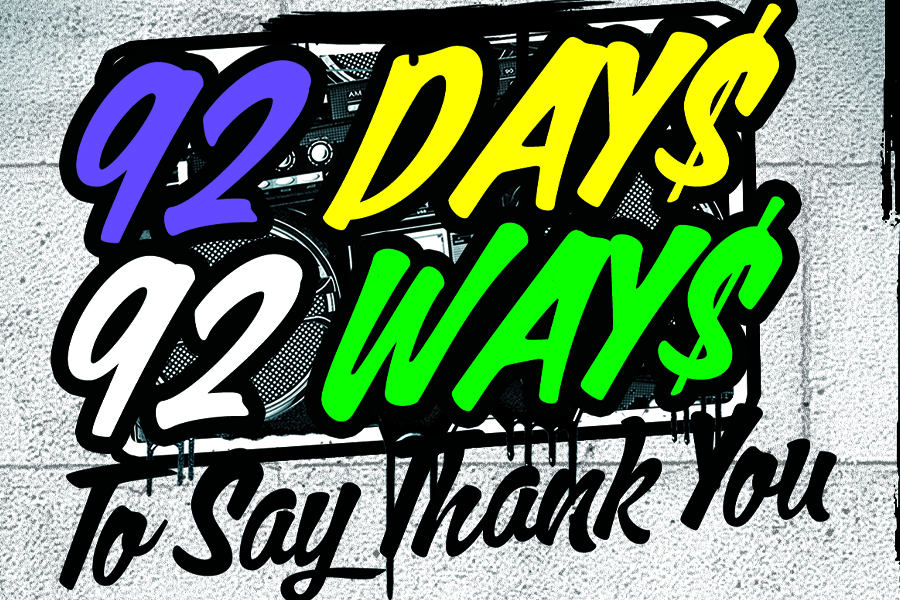Congressman Hakeem Jeffries Pens Hip Hop 50 Essay For African Voices Magazine

Marking Hip Hop History Month, Congressman Hakeem Jeffries, the House Democratic Leader, published the following essay in African Voices Magazine. In 2021, Congress established November as Hip Hop History Month.
“It was all a dream.
I used to read Word Up! magazine.
Salt’n’Pepa and Heavy D up in the limousine.
Hangin’ pictures on my wall.
Every Saturday Rap Attack, Mr. Magic, Marley Marl.”
Those words were uttered by the late, great Notorious B.I.G. But they also vividly described my own experiences growing up as a teenager in Central Brooklyn during the mid to late 1980s. Before Yo! MTV Raps and Rap City, all we had were Rap Attack, a rival show hosted by Kool DJ Red Alert and the iconic Video Music Box led by VJ Ralph McDaniels. It was through these venues that we were first exposed to the latest artists, including the rise of LL Cool J, Big Daddy Kane, Eric B and Rakim, KRS-One, MC Lyte, NWA and EPMD. After hearing new records, we couldn’t wait to talk about the compelling music we were just exposed to during homeroom or in the cafeteria the next day.
Early on in high school, I had two fantastical career objectives. The first was Hip Hop stardom, as I was casually rapping under the name Kid Fresh. The second was to become a point guard for the New York Knicks. Neither of these worked out.
Nevertheless, I still fondly remember my highest profile rap battle against a classmate named Sam, right in front of Midwood High School after the last bell. While memories are hazy, one of my boys seems to recall that I won the showdown on points.
Music is a soundtrack for our lives, none more compelling for me than Hip Hop. To this day, it allows me to mark and reflect upon different parts of my life based on the records that were banging at the time.
MC Run could do no wrong upon hearing Sucker MCs as a pre-teen. The BDP conflict with MC Chan captivated us in High School. When A Tribe Called Quest’s “Scenario” featuring Busta Rhymes was played during a Kappa party at College In The Woods up at Binghamton, the crowd went wild. And my eventual graduate school roommate while I was at Georgetown, Adrian Fenty, introduced me to Dr. Dre’s classic album “The Chronic.”
The Hip Hop landscape was forever changed by Dre, Snoop, Ice Cube, Tupac and a compelling array of West Coast rappers. But not to be outdone, the Wu-Tang Clan, Fugees, Nas, Biggie, Lil Kim, Mobb Deep, Jay-Z, DMX and a host of incredible new artists brought the East back. Balance was restored to the Hip Hop universe. And of course, OutKast, Ludacris and the South would also have something to say.
When the Notorious B.I.G. dropped “Who Shot Ya” during my first year of law school, it lit up the parties hosted by aspiring Black lawyers at NYU and Columbia. We studied Supreme Court case law during the week, and listened to Bad Boy, Tupac and Jay-Z on the weekend. As a young lawyer in Manhattan in the early 2000s, we debated the back and forth between “Takeover” and “Ether,” admiring the sophisticated wordplay of both songs.
To this day, when locked into political combat with an adversary and in search of inspiration, those classics remain my go to records — along with Queen Latifah’s “U.N.I.T.Y.”, Tupac’s “Against All Odds” and 50 Cent’s “Back Down.” When declaring victory during my first congressional race in June 2012, “Empire State of Mind” was blaring in the background. Yeah, I’m out that Brooklyn.
The older you get, the more things begin to come full circle. Hip Hop has evolved, but the power of its music, culture, language, fashion and art remain constant. It’s just that now I have to rely on my sons to keep me up on the latest drop from Kendrick Lamar, or inform me that “Lit” is the new “Hot.”
Throughout my time in elected office, I have had the privilege of representing the neighborhoods where Biggie Smalls and a host of iconic Brooklyn MCs were raised. Hip Hop is not just an important part of my life, but it’s intimately connected to the district I serve.
Six years ago, on March 9, 2017, I decided to go to the House Floor to deliver a tribute to the Notorious B.I.G. to commemorate the 20th anniversary of his tragic death. When I told the staff of my plan, one of them responded: “You can’t do that!”
So I asked the team to check the congressional record and validate my suspicion that other prominent artists like Elvis Presley, Frank Sinatra and Bruce Springsteen had been acknowledged on the House Floor by Members of Congress in the past. About an hour later, a staff member confirmed that all three had received multiple congressional tributes. I responded: “Great. Christopher Wallace is about to get one as well.”
The framers of the Constitution designed the House to be the institution closest to the American people, and reflect their hopes, dreams, aspirations, fears, concerns, anxieties and passions. It’s what makes the House of Representatives so unique. For me, that has meant authentically bringing to Washington all that Hip Hop music has represented for the communities I am privileged to serve. During this challenging time in America, House Democrats will continue to fight For the People. And I will continue to do my best to always represent for the culture.
Published in the November/December Edition of African Voices Magazine as Part of their Special50th Anniversary of Hip Hop Issue.
The post Congressman Hakeem Jeffries Pens Hip Hop 50 Essay For African Voices Magazine first appeared on The Source.
The post Congressman Hakeem Jeffries Pens Hip Hop 50 Essay For African Voices Magazine appeared first on The Source.




